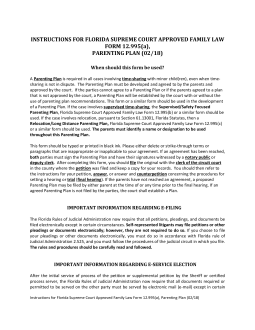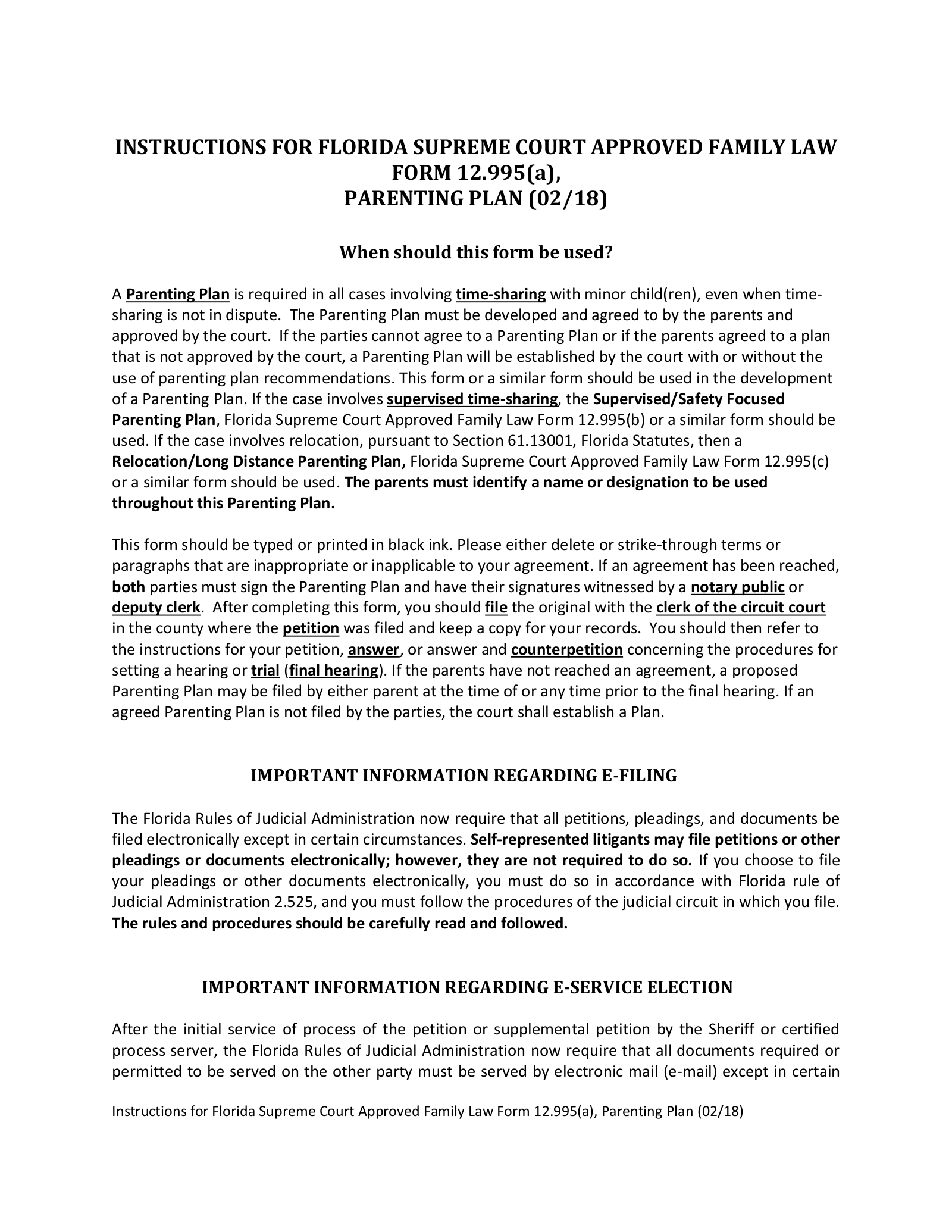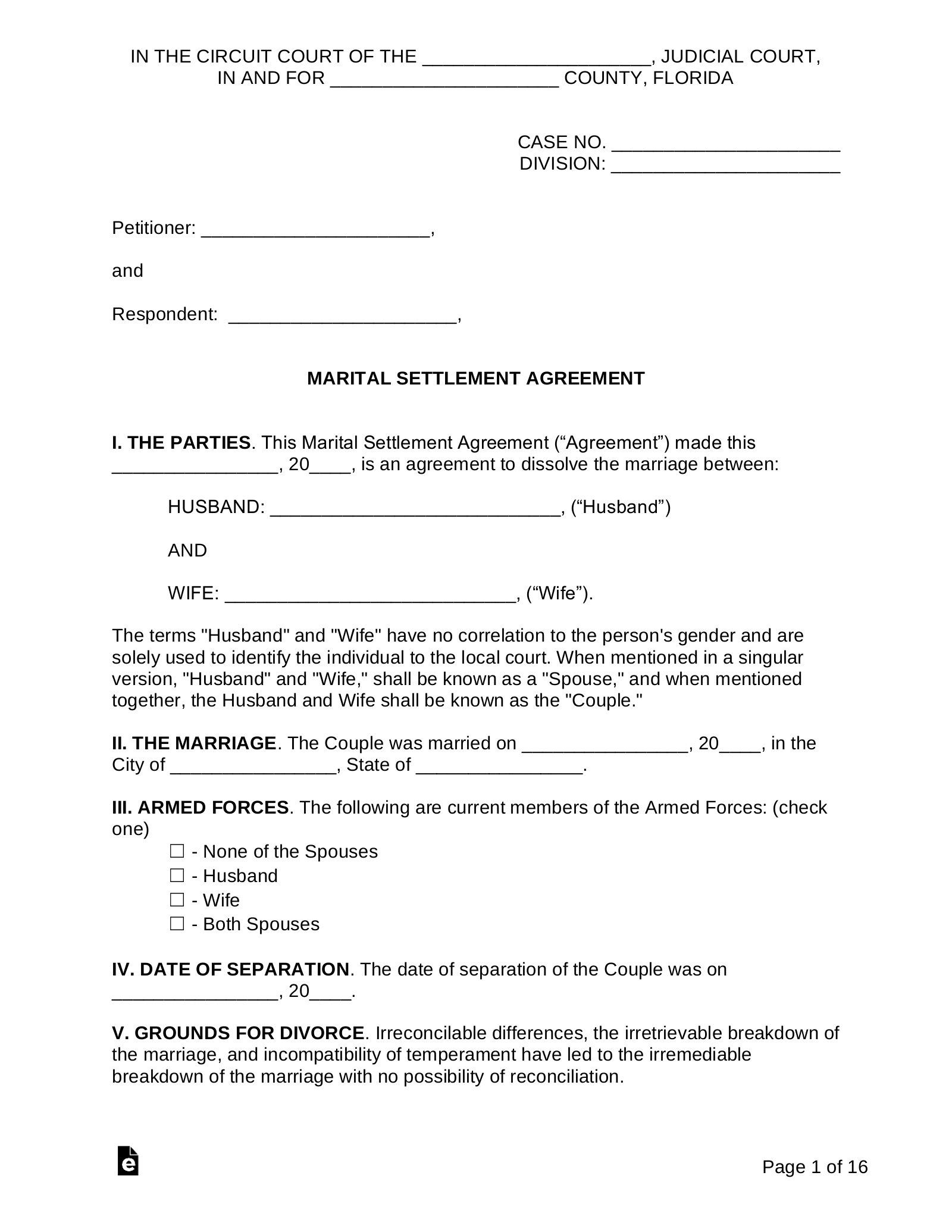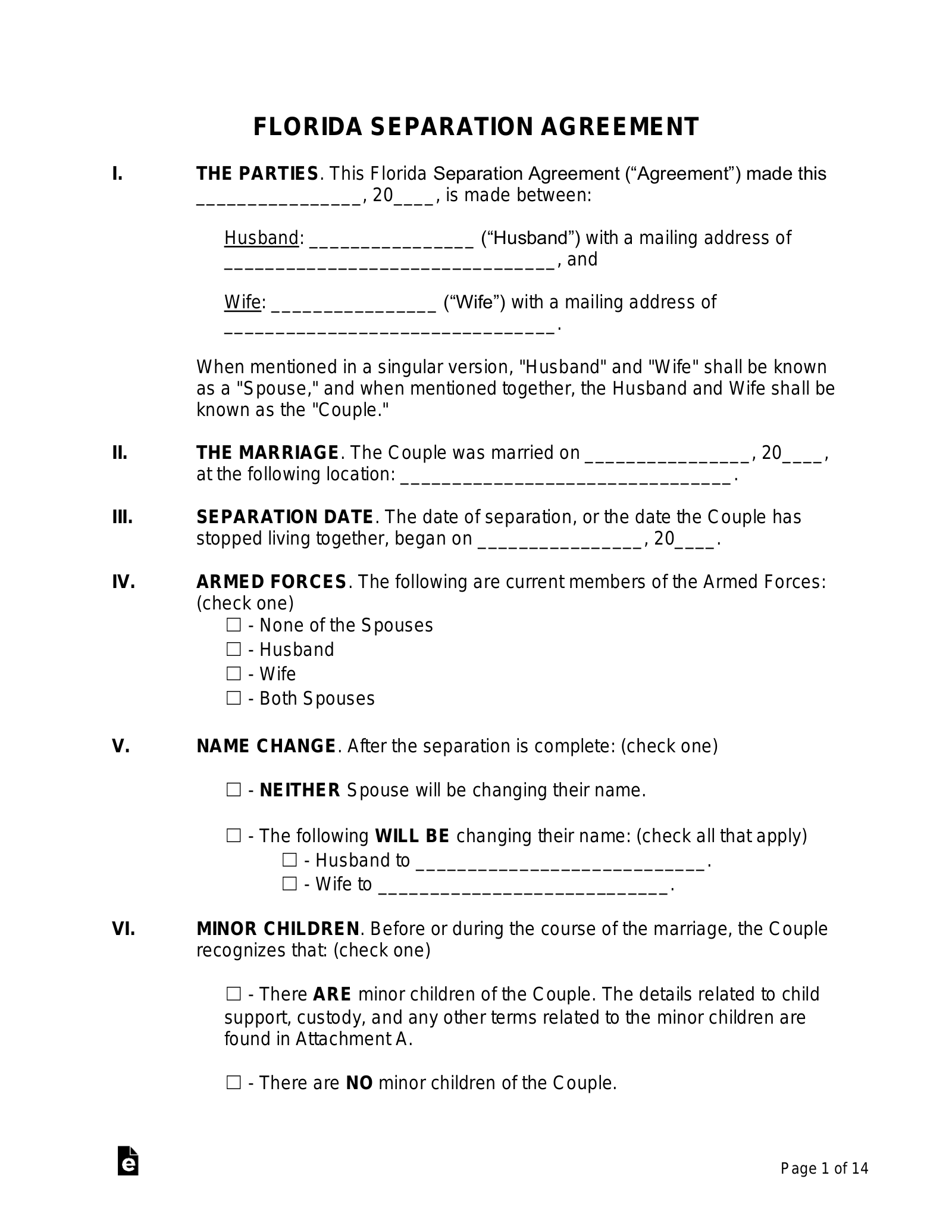Updated January 12, 2024
A Florida custody (parenting) plan is a required document when determining custody or “time-sharing” over a minor child during divorce proceedings. It outlines the parents’ plan for continuing to provide care for their child, including each of their decision-making rights, time-sharing schedule, and more. If the parents cannot reach an agreement, the court will issue a plan that serves the child’s best interest.
Child Custody Factors
Under F.S.A. § 61.13(3), family courts in Florida determine what is in the best interest of the child based on a total of 20 factors, including:
- Each parent’s demonstrated capacity and disposition to act upon the developmental needs of the child
- Each parent’s demonstrated capacity and disposition to communicate with the other parent and honor the terms of custody
- Each parent’s demonstrated capacity to provide a substance-free environment
- Each parent’s mental and physical health, as well as moral fitness
- Geographical viability
Table of Contents |
How to File for Custody in Florida
1. Agree on a Parenting Plan
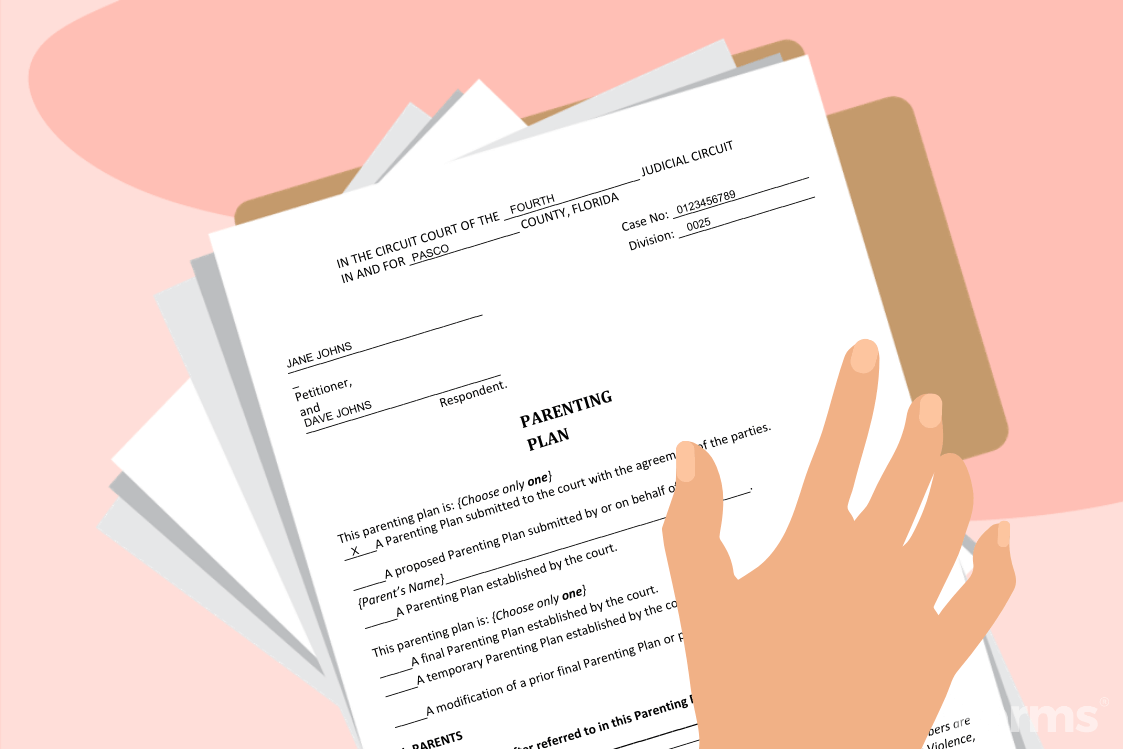
Florida law requires the parents of all cases involving the custody of a minor child to establish a parenting plan for the court to review. One of the following court-approved parenting plan forms must be used to develop the plan:
- Parenting Plan (Form 12.995(a)) – For general cases
- Supervised/Safety-Focused Parenting Plan (Form 12.995(b)) – For cases involving supervised custody
- Relocation/Long Distance Parenting Plan (Form 12.995(c)) – For cases involving the relocation of one or more parents
2. Calculate Child Support

The amount of child support each parent must pay is determined by state’s child support guidelines.[1] Factors include each parent’s monthly income, the number of children, childcare expenses, and more. If the child is still considered a “dependent” upon reaching the age of 18, the amount of support for the dependent child will be governed by the state’s guidelines.[2]
3. Complete and File the Form
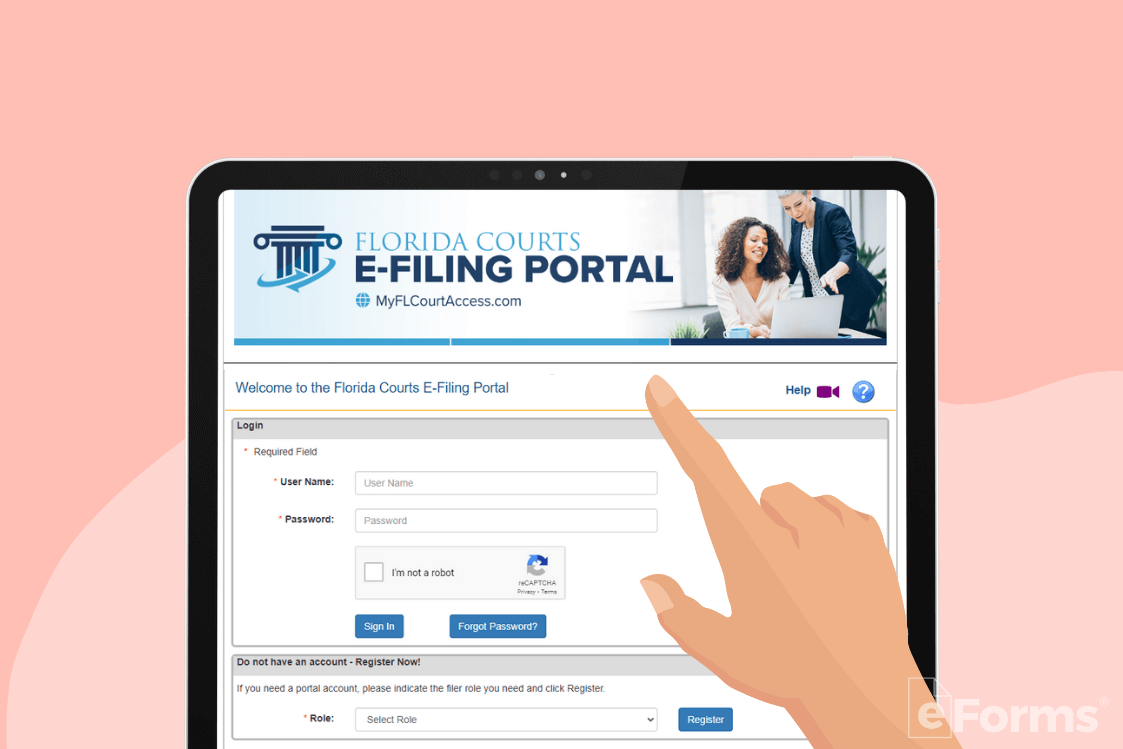
The form should be typed or printed in black ink. Once completed, the form should be signed by both parties in the presence of a notary public or a deputy clerk. It can be filed electronically using the Florida Courts E-File Portal or with the circuit court clerk in the county where the petition was filed.
4. Attend the Hearings
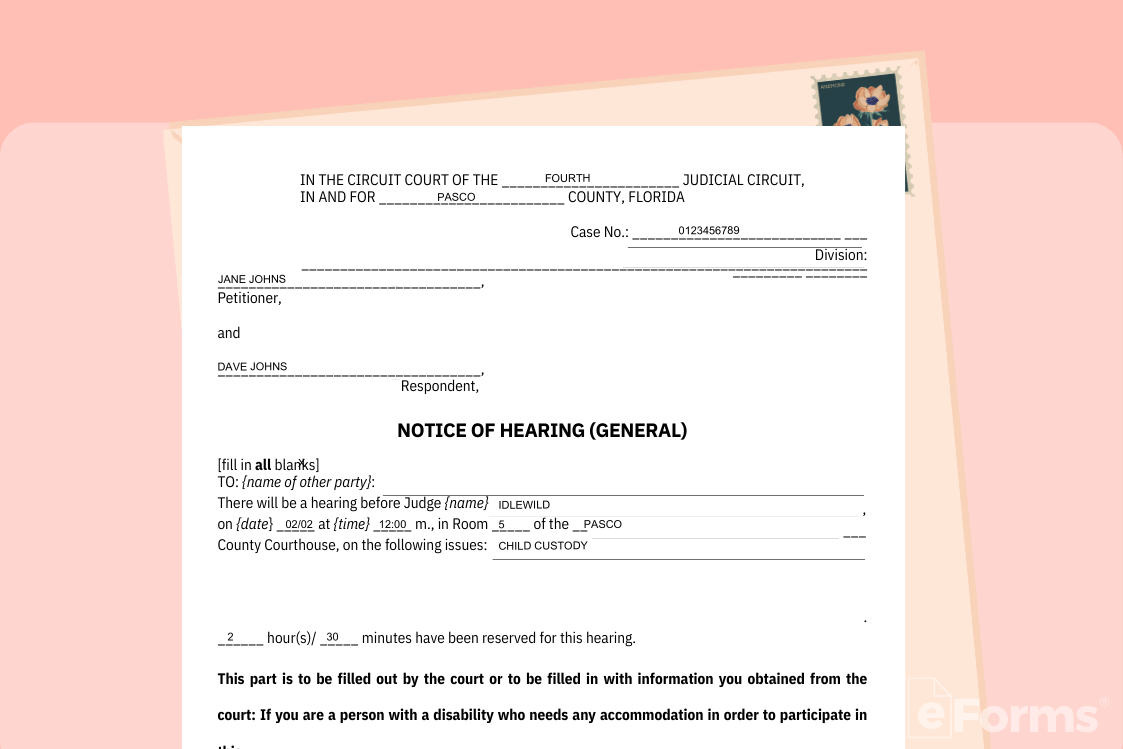
If both parents agree on all the terms within a parenting plan that the court approves, the hearings will likely move quickly. However, if the parents cannot reach an agreement or the court does not accept the submitted parenting plan, the court will establish a parenting Plan that it determines is best suited to the child’s interest. The judge may request a parenting plan recommendation or appoint a guardian ad litem—or a neutral party—to hear the parents’ issues and report back to the court.
5. Receive Court Order
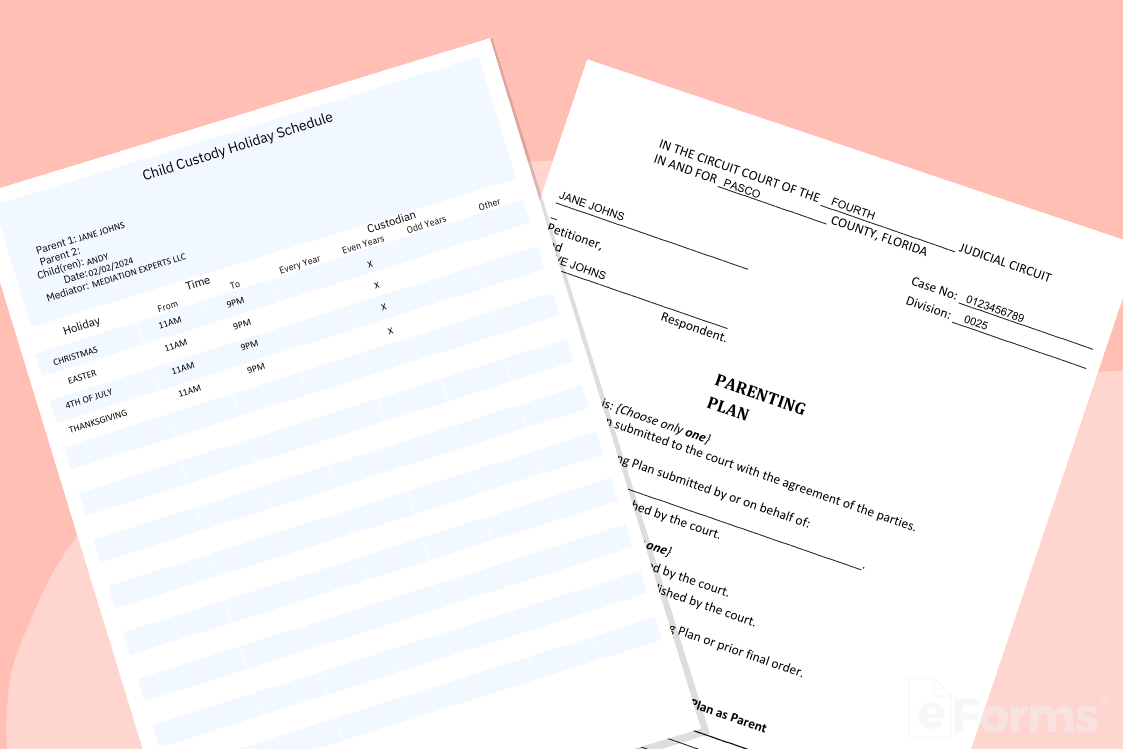
The court will issue an order that either approves the submitted custody terms or establishes a new parenting plan at its own discretion. Once issued, the order will be legally binding for both parents.
Custody Laws
- Child’s preference: In Florida, a judge is not required to consider the child’s preference when determining custody.
- Grandparent visitation rights: § 752.21
- Mandatory parenting class: § 61.21(2)(a)
- Parent visitation rights: § 61.13(2)(a)
- Uniform Child Custody Jurisdiction and Enforcement Act: Title 6, Chapter 61, Part II
Related Forms

